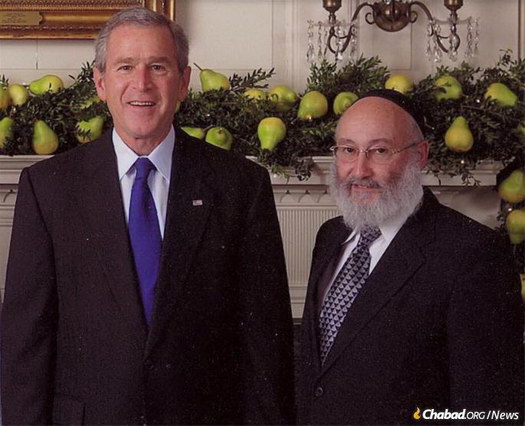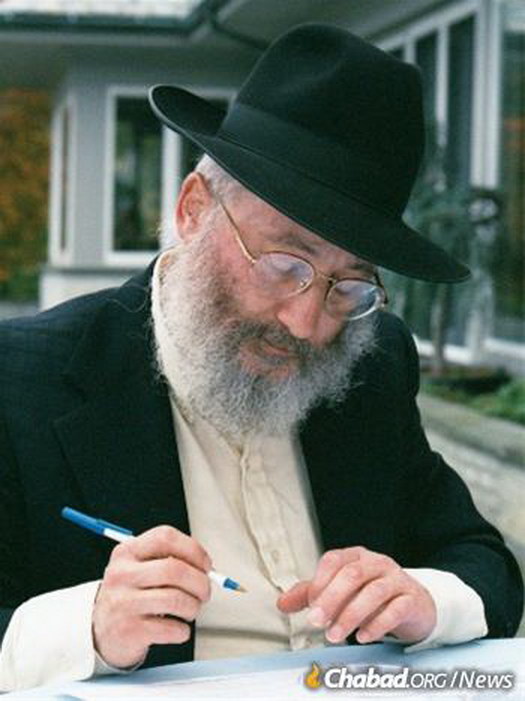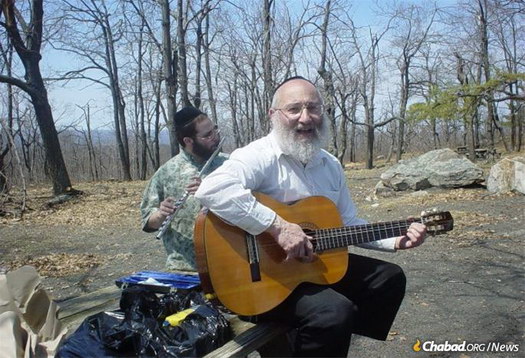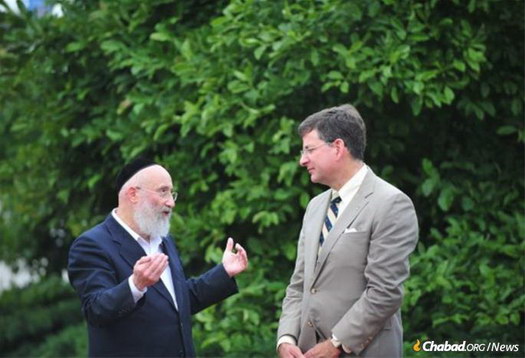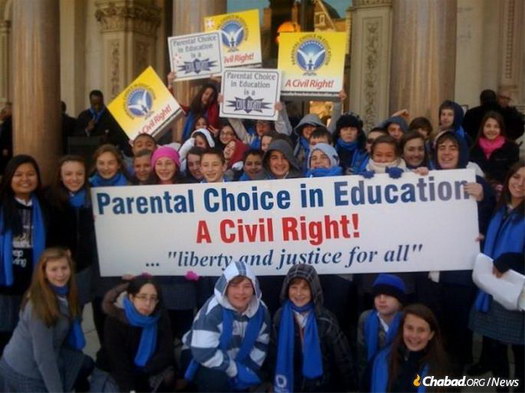
Obituary: Rabbi Israel Teitelbaum, 75, Tireless Advocate for Education
by Menachem Posner – chabad.org
Rabbi Israel Teitelbaum was a man of action, an educator who identified the needs of the individuals and communities around him. He did this in both his hometown of Morristown, N.J., as administrator of the Rabbinical College of America, and on a national level—most notably, in his decades-long struggle to improve the educational choices of minority children through the use of education vouchers. He passed away on Oct. 29 at the age of 75 after a battle with ALS (Lou Gehrig’s disease).
In efforts to bring better education to children in New Jersey and beyond, Teitelbaum was seen as a trendsetter and a source of inspiration to many. “His commitment was inspiring,” said Brett Schundler, a former Jersey City mayor and two-time gubernatorial candidate who made school choice central to his political career. “Whenever I would become tired of fighting what seemed like an endless uphill battle, I would see him doing whatever he could without tiring or becoming discouraged, and I would keep on going.”
Teitelbaum was born in the waning months of World War II in Bletchley, England, outside of London, to Rabbi Avrohom Yaakov and Freida Teitelbaum, who had narrowly escaped Vienna after the Anschluss and found refuge in London until the incessant bombings drove them to the suburbs.
In 1948, the Teitelbaums emigrated to the United States and settled in Queens, N.Y., where Rabbi Teitelbaum became the spiritual leader of a congregation in Kew Gardens. A widely respected Torah scholar, the rabbi also continued his work, which had begun in Europe, as a leader of Agudath Israel.
Along with his brothers, young Yisroel Mordechai—known as Sruli—made the daily trek by public transit to the Williamsburg neighborhood in Brooklyn, where they attended Yeshivah Torah Vodaas. In time, they transferred to the Chabad yeshivah, then on the corner of Bedford and Dean streets in the Bedford-Stuyvesant neighborhood. He continued to study in the Chabad yeshivahs in Montreal and Brooklyn, and served as longtime head counselor of Camp Gan Israel in Michigan during the 1960s.
In 1970, he married Chaia Lewin, who was born in France to stalwart members of the Chabad underground network of Jewish life in the Soviet Union, who had fled to the West in the chaos that followed the war.
The Teitelbaums lived as Chabad-Lubavitch emissaries in New Jersey, Massachusetts, Michigan and California before settling in Morristown, where the rabbi took a position as administrator and registrar at the Rabbinical College of America, which he held for decades.
‘He Was Always Optimistic Things Would Change’
Teitelbaum (also known to many as “Rabbi T”), took an active interest in those around him, particularly those whom others overlooked. He would spend his Thursday evenings playing guitar and singing in nearby nursing homes, which served low-income residents, most of whom were not Jewish.
Never intimidated by those who felt education reform was a lost cause, he lived by his credo that “you need to put your finger to the task, and let G‑d take it from there.”
When he noticed that families in Morristown needed to walk along a stretch of country road with no sidewalk to attend Shabbat services, he lobbied hard to get a mile-long sidewalk built. To do so, he organized community meetings and got like-minded community members to attend city and county hearings, before the issue was resolved.
Another contribution of his was the campus eruv, which he erected and maintained quietly without taking credit or donations.
He also founded and directed the local Gan Israel Day Camp, which gave thousands of children from the area a safe summer filled with fun and Jewish growth.
However, what may have been his most engrossing task—one that bordered on obsession—was his single-minded passion to give every parent the opportunity to give their children an excellent and affordable education. This led him to found and lead the Alliance for Free Choice in Education, a grassroots organization of which he took the unassuming title of “secretary.”
To him, it was a civil-rights issue since a quality education is a right enshrined by the constitution—one he saw as almost out of reach for inner-city children and those whose religious needs that prevented them from attending public schools.
To remedy the situation, he drafted, proposed, and promoted federal legislation to restore power to parents by allowing them to choose the school of their choice using education vouchers.
He attended and organized conferences, meetings and rallies, standing arm in arm with black ministers, community activists from across party lines—anyone who would partner with him in his quest for making quality education a reality for all.
“There was nobody I knew that was more focused on a single issue than him,” recalled Josh Pruzansky, CEO of Raritan Valley Orthodox Jewish Community Association, “and he was always optimistic things would change in spite of all the odds stacked against his dream. He never lost hope. I received one of his emails that always started with ‘By the grace of Our Creator,’ just two weeks ago.”
Soft and almost shy on a personal level, he was bold and outspoken when necessary. Yet he never looked for accolades and focused instead on the work at hand.
Indeed, even as ALS crippled him, he continued to type, writing essays, op-eds and emails to whomever he could, never letting on that he was literally using his last strength.
“Israel means one who ‘battles G‑d,’” notes Schundler. “And that is exactly what he did, day in and day out, battling to make this world a more G‑dly place.”
In addition to his wife, he was survived by their 13 children: Chana Devorah Solomon (Short Hills, N.J.); Yankee Teitelbaum (North Miami Beach, Fla.); Dini Felzenberg (Blythewood, S.C.); Dassi Leader (Manalapan, N.J.); Rabbi Zalman Teitelbaum (Bronx, N.Y.); Faye Rosenberg (Teaneck, N.J.); Choni Teitelbaum (Hollywood, Fla.); Moshe Teitelbaum (Los Angeles); Dovid Teitelbaum (Morristown, N.J.); Sarah Pruce (Ithaca, N.Y.); Beryl Teitelbaum (Los Angeles); Shayna Teitelbaum (Jersey City, N.J.); and Mendel Teitelbaum (Valhalla, N.Y.).
He is also survived by his siblings, Rabbi Yitzchok Meir Teitelbaum, Rabbi Yosef Teitelbaum, Miriam Leiser, and Leah Feldman.
He was predeceased by siblings Rabbi Moshe Teitelbaum, Rabbi Eli Teitelbaum and Rabbi Shlomo Teitelbaum.
This article was reprinted with permission from chabad.org
